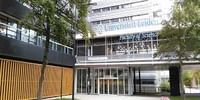Students will learn to investigate and solve problems in economics, business, and finance, using quantitative techniques. It’s a challenging program that offers big rewards, including excellent mathematical skills, analytical reasoning skills, problem-solving skills, and also presentation skills. These will come in handy when students share their proposed solutions with others who may not be econometricians.
If students choose the Econometrics and Operations Research track, students will get a broad and solid foundation in econometric theory, as well as courses on the application of Econometrics in practice.
Econometrics and Operations Research is highly important within the field of economics and business, as it uses quantitative skills to solve problems and make decisions. How do people predict the next big stock market crash and how should they respond to it? How should a tech company price its latest smartphone so that it is both profitable and competitive? Besides learning skills such as mathematical modeling and programming; students will also learn to question decisions from an ethical perspective.
The Econometrics and Operations Research track has an intake of about 100 students every year. The relatively small scale will allow students to get to know everyone, get into the depth of the subject matter, and build a huge network that will benefit the rest of the student’s careers. Students will get lectures on theory, work on group assignments, do case studies, and get first-hand experience with various companies.
Students will be learning from people at the forefront of their field. Most of your teachers are actively involved in research. Others also work in business when they’re not at the university. This ensures the program to be both relevant, and up to date. In fact, the Econometrics and Operations Research program – at both Bachelor’s and Master’s level – has been rated as a “topopleiding” (high-quality education) by the Keuzegids Universiteiten two years in a row.












